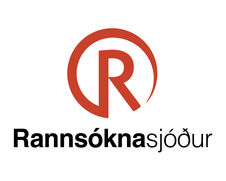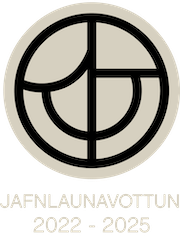Líkamleg gagnrýnin hugsun - verkefni lokið
Fréttatilkynning verkefnisstjóra
Embodied Critical Thinking is a ground breaking project that brings together theories and practices of embodied thinking developed on the basis of phenomenological and pragmatist philosophies. The project takes a leap from ontologies and epistemologies of relationality and interaction to an embodied, situated, and interactional practice of research in the context of higher education.
With this leap, we systematically interconnect the theoretical and abstract approach to problems and issues, with a dimension of practice that supports students and researchers to connect to a level of relevance that is experienced, lived and felt.
One result that ECT has been recognized as a new and budding area of research in which the leap from theory to practice has led to new training formats and further international research cooperation. We began with two main methodologies and have attracted more pioneers taking this leap in the cognitive sciences, using other methods such as meditation, presencing and social presencing, thus enlarging the ECT-toolbox. At this point, the University of Iceland is being recognized as a hub for this exciting are of research with great innovative potential for theories and practices of embodied critical thinking.
∙ Information on how the results will be applied
The results of the project have been applied in a first pilot run of an ECT training program that is funded by Erasmus +. The positive experiences we have gained through this first application, have led to more interest in our project, so that the research team has become bigger and more interdisciplinary. On this basis, we recently submitted an excellence application to Rannís to take a further step and develop an extensive multi-methods training program of critical and creative thinking which will be accompanied by research on the effects of the methods. The theoretical research of the first ECT project has become the foundation for this interdisciplinary research approach, in which a team of empirical, qualitative, quantitative and theoretical researchers will explore the effects and impacts of ECT methods on the researcher’s mental capacities, but also on the researcher’s wellbeing.
A list of the project’s outputs
Published books
Björn Þorsteinsson, Verufræði, Heimspekistofnun 2022
Donata Schoeller; Close Talking: Erleben zur Sprache bringen, Berlin: De Gruyter, 2019.
Guðbjörg R. Jóhannesdottir, Vá! Ritgerðir um fagufræði náttúrunnar, Heimspekistofnun 2020.
Nachdenklichkeit, ed. by Christine Abbt, Donata Schoeller and Hartmut von Sass, Zürich: Diaphenes, 2020
Presentations and talks
The members of the ECT groups have given 20-30 public lectures on ECT at philosophy conferences all over the world.
Articles and book chapters:
See the publication lists of the PIs and the researchers in the ECT team for the numerous articles and book chapters published by members of the group.
Among the articles that are introductory about ECT see:
-D. Schoeller and S. Thorgeirsdottir, Embodied Critical Thinking: The Experiential Turn and Its Transformative Aspects, philoSOPHIA, 9/1, 2019.
- D. Schoeller and S. Thorgeirsdottir, "Verkörperung der Nachdenklichkeit", in Nachdenklichkeit, ed. by C. Abbt, D. Schoeller & H. von Sass, Zürich Diaphenes 2020.
-D. Schoeller, "Micro-phenomenology as a practice of critical thinking". Constructivist Foundations 16(2): 195–197. https://constructivist.info/16/2/195, 2021.
-Elsa Haraldsdóttir, Donata Schoeller, Guðbjörg R. Haraldsdóttir and Sigríður Þorgeirsdóttir. Líkamleg gagnrýnin hugsun, Hugur 33, forthcoming 2022.
- Elsa Haraldsdóttir, Guðbjörg R. Jóhannesdottir and Sigríður Þorgeirsdóttir. Líkamleg gagnrýnin hugsun: --Fyrstu persónu aðferðir gagnrýninnar hugsunar, Tímarit Kennslumiðstöðvar Háskóla Íslands 8(1), 52-55, 2021.
D. Schoeller & S. Thorgeirsdottir, Embodied Critical Thinking, Information Philosophy, spring 2022.
Heiti verkefnis: Líkamleg
gagnrýnin hugsun/ ECT – Embodied Critical Thinking
Output of the Nordic Optical Telescope
Verkefnisstjóri: Sigríður Þorgeirsdóttir,
Háskóla Íslands
Tegund styrks: Verkefnisstyrkur
Styrktímabil: 2018-2020
Fjárhæð styrks: 55,041 millj. kr. alls
Tilvísunarnúmer Rannís: 185292


